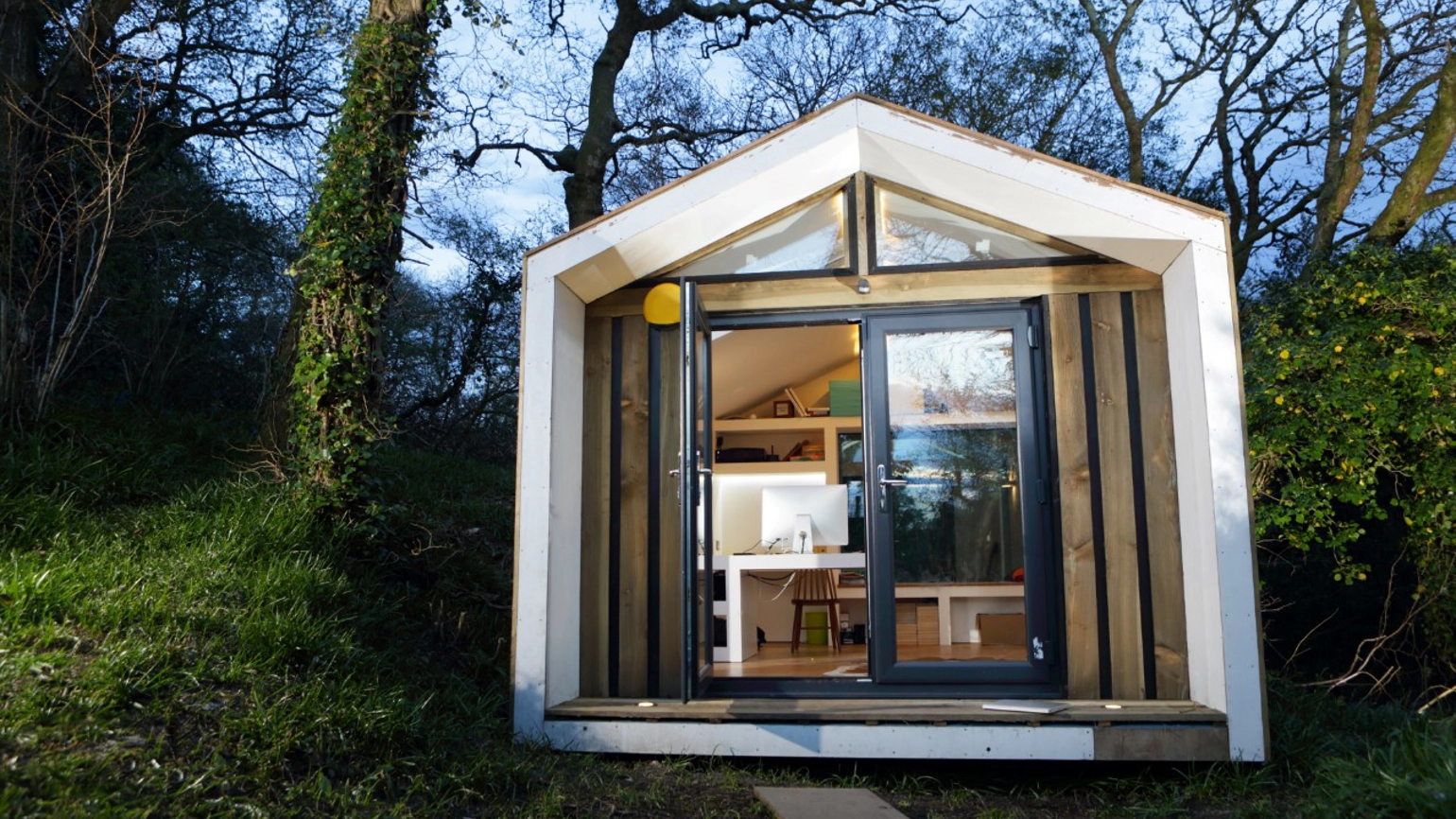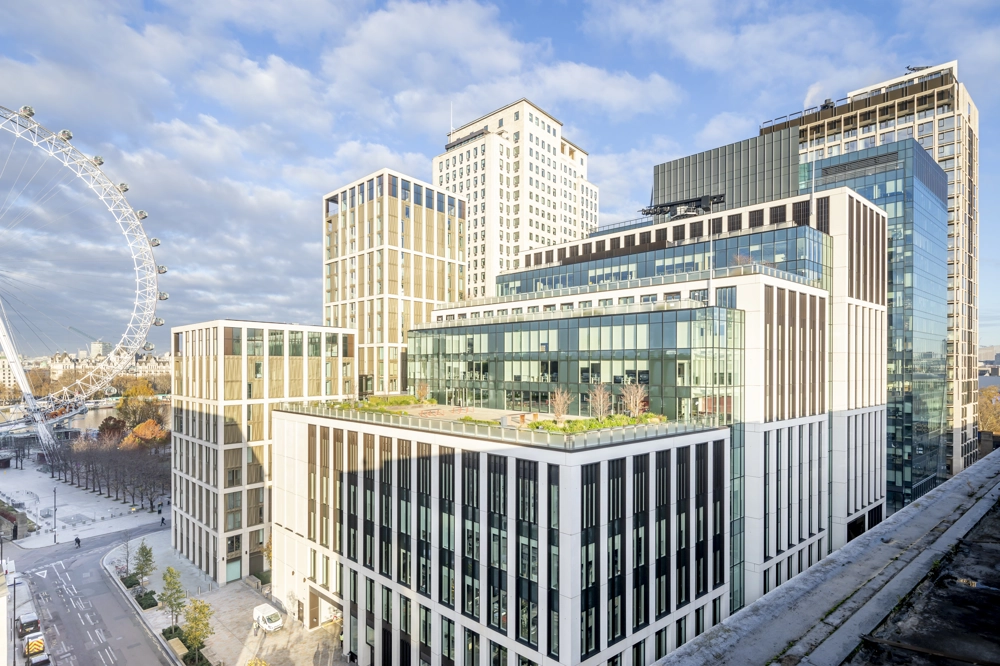- Retirement income, including annuities
- Lifetime mortgages/equity release
- Retirement financial advice
- Care
- Protection
Garden offices here to stay: Google searches for garden offices 22% higher than pre pandemic
Searches for ‘garden office’ in the UK peaked during the height of the pandemic at 726,000 between 2020 and 2021.
17 Jul 2023
Full press release

- The total number of searches (2022-2023) was 22% higher than pre pandemic (2019-2020)
- The number of searches for ‘hybrid working’ increased from an average of 120 searches to nearly 119,000 in 2022-2023
- But homeowners planning to build a garden office need to be aware of the latest planning regulations, according to Legal & General Surveying Services
Legal & General Surveying Services reveals new analysis1 on the number of Google searches for garden offices, highlighting that the pandemic induced focus on making the most of your home space for hybrid working is here to stay. The analysis suggests that average annual Google searches for the term ‘garden office’ stood at 396,000 between April 1st and March 31st (2022 - 2023).
A rising trend
Undoubtedly, there was a spike in searches for ‘garden offices’ during the height of the pandemic, with searches peaking at 726,000 between 2020 and 2021, and declining again the following year (2021-2022) standing at 486,000 searches. However, while the total number of searches decreased further in 2022-2023, the total number of searches was 22% higher than pre pandemic (2019-2020).
Further research highlights that the number of properties listed on the market with a garden office has risen drastically over the last decade. Research from Rightmove highlights that the proportion of property listings that mention the term ‘garden office’ is 11 times higher than a decade ago, up 1,046 per cent.2
This increase correlates with a continued trend of UK workers looking for hybrid working solutions. The number of searches for ‘hybrid working’ increased significantly following the first lockdown, rising from an annual average of 120 searches, to nearly 119,000 searches in 2022-2023.
Value in real terms
The value homeowners could add to their property by building a garden office, or converting an existing out-building into one, is significant too, according to research from Barrows and Forrester, a Birmingham based estate agent, found that a garden office could add on average 7.5% or £21,563 to the value of an average property3.
Considerations for homeowners
While the benefits of building a garden office are significant when thinking about the value you could build in your home, there are some key considerations homeowners and buyers looking to build a garden office must consider.
In most cases, a garden office can be considered for permitted development, meaning you wouldn’t need to apply for planning permission. However, there are criteria which must be met4. Buildings that can be considered for permitted development include those that:
- Are not in front of a wall that forms the principal elevation
- Do not have an eaves height of over 2.5 metres and an overall height of four metres (dual pitched roof) or three metres (any other roof)
- Do not have an overall height of more than 2.5 metres and sit within two metres of a boundary
- Do not take up more than half the area of land around the ‘original house’
- Are not set in National Parks, Areas of Outstanding Natural Beauty or World Heritage sites
- Are not within the curtilage of a listed building or buildings
- Are considered incidental, i.e. it is used when working from home on a part time basis (hybrid working)
- Are not being used five days per week and where clients visit the office
While this list is a useful guide, it is always recommended that you seek advice from your local authority planning department to be absolutely certain on whether planning permission is needed for an outbuilding construction. It would also be wise to contact your home and contents insurer to make sure that the value of any additional belongings are covered.
Trudy Woolf, Sustainability Director, Legal & General Surveying Services: "With many workers moving away from the traditional nine-to-five work week, to hybrid working life, it’s interesting to see an increased interest in building garden offices. Clearly, building a garden office could potentially increase the value of a property, making it an attractive option for homeowners and prospective buyers.However, for those looking to buy a property with the intention of building a garden office, it is vital that they get a professional survey before pressing ahead with the purchase. A survey will provide purchasers with detailed insight into the property they’re buying, and any potential additional costs they could be facing once they move in. In addition to performing a visual inspection of the garden, a surveyor will assess retaining walls, boundary walls, patios, gates, fences and pathways, all of which could have an impact on the feasibility of building a garden office.”
Things to consider when building your garden office…
1. Do I need planning permission if I want to add a toilet to my garden office?
Providing permitted development rules are followed, there is no need for planning permission to install a garden office toilet at all.
2. What are the best choices for building materials?
The most popular building material for a garden office is cedar. It is resilient and has an estimated lifespan of over 25 years. However, more affordable alternatives include Thermowood and Siberian Larch.
3. What are the recommended materials for designing a garden office roof?
Although garden offices are famous for their flat roofs, the truth is that these designs are built at an angle to allow for rainwater runoff. EPDM, a thick and dark-coloured rubber, is a popular roofing material. However, an alternative option is a ‘living roof’ made from sedum or meadow, which is both environmentally friendly and strongly insulating.
References
1Legal & General Surveying Services analysed google search data from April 1st 2019 – March 31st 2023 using the terms ‘garden office’ and ‘hybrid working’
2https://www.rightmove.co.uk/press-centre/dining-rooms-decline-and-orangeries-on-the-rise/
4https://www.planningportal.co.uk/permission/common-projects/outbuildings/planning-permission
Further information




